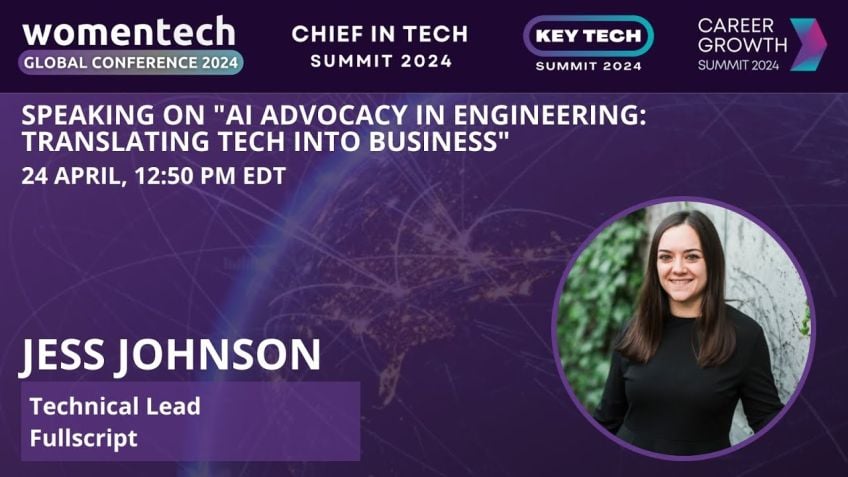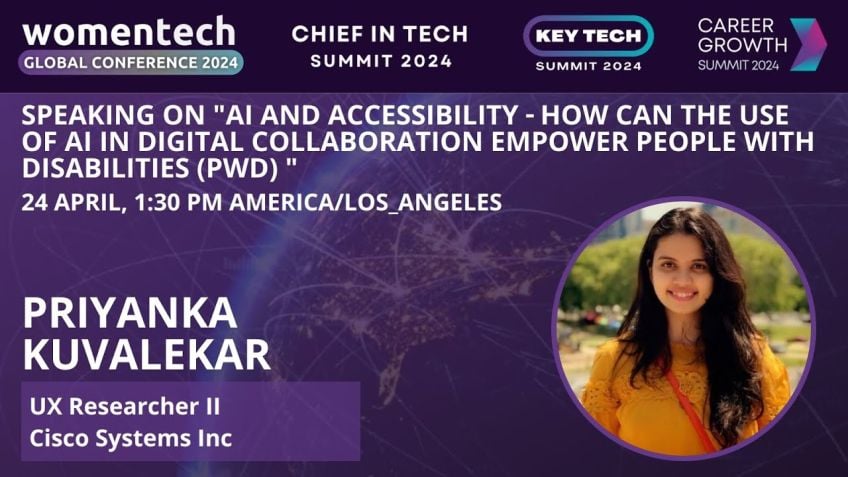Building and Empowering Technology Teams
Catherine Brinkman
VP of Client ExperienceFaylene Bell
Senior Director, Digital MarketingMichelle Joliat
Senior Vice President, Product and DeliveryPallavi Otawkar
Vice President, R&D OperationsEmpowering and Building Your Technology Teams
Technology is in my DNA. I am Catherine Brinkman, VP of client experience with Dale Carnegie training of the Heartland. Building and empowering technology teams is a passion I have pursued passionately, and today, I am privileged to be in the company of three outstanding women who are accomplishing this very task.
Meet the Panelists
Firstly, we have Michelle Joliet, Senior VP of Product and Delivery at Ontario Teachers Pension Plan, based in Toronto, Canada. Michelle heads up an entire product organization comprising of about 20 agile squads.
Next, we have Paula Oaker from Bay Area, California. She has been in the tech industry for over 20 years in varied technical engineering roles and currently serves as the VP of R&D Operations at ServiceMax, a PTC Technology.
Last but not least, Fele Bell, a veteran in marketing and technology for over 20 years. Having started in credit card marketing, she has transitioned into the technical marketing side currently honing her talent at NVIDIA based out in Silicon Valley in California.
Defining Empowerment
Empowerment is a term widely used but often misunderstood. For our panelists, it holds varying but complimentary meanings.
- Paula Oaker: Empowerment is about enabling others to do more of the right things better. It revolves around setting the right vision and culture in the organization.
- Fele Bell: Empowerment, for Fele, is about helping her team with data, insights, and strategies, so they also can make the best decisions for their roles and organization.
- Michelle: For Michelle, empowerment is about giving people the responsibility and the authority to make decisions on how they want to do things best.
Building Empowered Teams
Creating an empowered team isn't merely about assigning roles and milestones. Instead, it requires a deeper understanding of the team dynamic, individual styles, and how to communicate effectively to build trust and the confidence to ideate freely.
The approach to achieve empowerment varies, from building a more silent initial observation into a team dynamic to enabling them through the right tools and environment to testing their decision-making abilities to create an entrepreneurial spirit where people can make decisions and learn from their mistakes.
Process and Cultural Change for an Empowered Team
The approach to process changes is to see process as a means to an end and not the end in itself. Cultural change is about enabling an environment where communication is open, direct, and breaking the barriers of reluctance for radical candor, and yet, keeping the respect intact. Learning from mistakes and never repeating them is the key to succeeding in an empowered environment.
Changing the Status Quo for Women in Tech
- Michelle: It involves encouraging more girls and women to enter and strive in the tech industry by creating a welcoming and supportive culture.
- Paula: It would be to encourage more girls at a grassroots level. Supporting women during the mid-phase of their careers as this is when many drop-off due to work-life imbalance and showcasing more women leaders as role models to inspire the next generation.
- Fele: The organization's culture needs to be considered. If it is not supportive, one should have the courage to leave and find an organization that values their contribution.
Closing Thoughts
Empowering and building a technology team involves a harmonious blend of skills, attitude, culture, policies, and understanding at both individual and team levels. As leaders, the onus is on us to provide an inclusive, supportive, and productive environment where our teams can succeed and thrive. Remember, a diverse and empowered team is the backbone of successful technological advancements and innovations.
Video Transcription
Good afternoon, everyone. Thank you for joining us today. What we're going to talk about is how are we able to build and empower our technology teams? My name is Catherine Brinkman and I will be moderating this discussion a little bit about me. I grew up in Silicon Valley.So around technology, I had my first computer in 1984 when I was five years old. So it's something that I'm very passionate about and I currently am the vice president of client experience with Dale Carnegie training of the Heartland. So I don't work in tech. I definitely talk about it and work with a lot of those individuals in technology and it is a passion. So today we have the privilege of having three women talk about how they have actually empowered their teams and we'll get some best practices and some ideas about what they have done. So I'm gonna turn it over to each of you to do a quick introduction. And why don't we go ahead and let's start with Michelle.
Hi, thanks so much for having me today. My name is Michelle Joliet. I'm coming to you from Toronto, Canada right now. Um I'm the senior vice president of product and delivery at Ontario Teachers pension plan. So we're one of the largest pension plans in Canada with about 245 billion assets under management. And I head up the entire product organization. So there's about 20 agile squads that deliver all of our technology platforms, tools across our organization. I have change management, agile enablement office, project delivery, business analysis, and some random finance uh function. Um And I'm excited to be here to talk to you again this year.
Great. And let's go over to Paul V if you would go ahead.
Sure. Thank you for having me here. I'm really excited. So I'm Paul Oaker. I'm based out of Bay Area, California. I've been in the tech industry for over 20 years. And as you can see, I'm a woman of color, first generation immigrant with a Q I degree from India who moved to the USA part of a consulting work assignment. Since then, I've been in various technical engineering roles. I've transitioned from tech lead into leadership roles eventually and been with uh organizations like Siemens Marto G Digital currently at Service Max, which is a PTC technology. Uh I'm a VP of R and D operations and I lead a portfolio that includes technical program management, aws infrastructure operations, technical publications and product education. And uh really, I mean, just uh my involvement in women in tech, the light bulb moment was for me was when my daughter was a teenager, uh said she looks up to me as a role model. That's when I realized I need to be more vocal and actively involved so I can make things a little bit easier for the next generation of them.
Very personal touch. Fele. Please go ahead.
Hi, I'm Fele Bell and I'm happy to be here as well on this panel with everyone and all their accomplishments. I've been in marketing and technology for 20 something years. Um I didn't start off traditionally and the marketing tech space, I started off in credit card marketing and I've worked on the agency side and I've also worked in financial services. Um I would say the last 10 years, I've been more so on the technical marketing side, spending time at AT&T and most recently for the last 4.5 years, I'm at NVIDIA, which is based out in Silicon Valley in California. I am remote here in Atlanta. Um And so I'm hoping to share my lessons learned over the years, also being a double minority, a woman and um African American as well in the tech space.
So I thought we just open with what is empowerment mean? It's pretty broad. So I wanted to ask each of you, what does that mean? And PV, let's start with you, what is empowerment even mean?
Sure. So as a leader, I believe that empowerment is about how I can enable others to do more of the right things better. And really a lot of this begins with setting the right vision and culture in the organization. So personally, like even at service Max, I've seen a lot of change, but the most positive impact that led to empowered employees was when leadership explicitly spelled out key values for our organization of win together and customer obsessed. This is just gave everybody in the organization a framework to make the right decisions on their own focus on how the, how not just the what and then just seeing leaders and peers walk the walk. In addition to just talking about it really made everybody feel empowered.
Thank you. And then feeling, let's go over to you. What does empowerment mean to you?
So I feel that empowerment is really about helping my team, my employees, my peers with data insight strategies so that they can also make the best decisions for either their role, their organization. So it's about sharing kind of the vision of what leadership has shared with me and trying to figure out how I can share that and inspire people. I don't want to be a supervisor. I wanna be a coach. I wanna be a man who are more so to help guide you. I don't want to tell you what to do. So, empowerment is giving each individual regardless of where they are kind of in on the scale organizational wise, the power and confidence for them to do their job most effectively.
Great. Thank you. And then Michelle for you, what does empowerment mean? This
is not a good group to be last in? I tell you. Um I think, I mean, a lot of it's really been summed up but I think it's giving people the responsibility of the work and then the authority to make decisions on how they want to do things best. So I think to be in organizations that have real um entrepreneurship where people can make decisions, try things fail fast. And because we're really agile, you know, you're never more than two weeks away from sort of a checkpoint with someone to make sure and, and to failing's point, I mean, it's absolutely the opposite of micromanagement like you are not in their stuff, but you're there to support um and to pick things up when it doesn't work.
Michelle, a couple of things you talked about is having the coffee chats doing the town halls when you think about your team, give us a little bit of insight as how have you actually built them
up? Oh, that's a great question. I am. I joined teachers in January of 2020 about eight weeks before the pandemic. And so I think the last 3.5 years have been really about building trust. I came from one of Canada's big banks and I would say we're pretty opposite in terms of our culture, of the big bank. So it's getting the trust out there. Um Having a coffee chats to your point. Like I meet with everybody in my organization about every six months. So I have a coffee chat every week with a group of 6 to 8 people understand what's going on, do some myth busting, figure out about them. Um, I launched a, a big org redesign to move to a product model, um, starting in November of 2020. Um and I had one on ones with people to understand the pain points where they thought things could go. And I think it's really about understanding who the people are on my teams and how I can support them. Knowing about, you know, some of the invisible disabilities that have made this period really challenging. I think, I mean, everybody knows about the little kids and the elder care and sickness and all the other challenges we've had. And I think, um being an empathetic leader and also when this whole thing started, I had two kids that were three and six.
So I was living it with everybody. And I think when you give people the ability to do really, really interesting work and you challenge them and then you support them and you go through it together and you have those proof points when things fall down and you've got the psychological safety to build people up.
Um I think you really, you get to know people and they start trusting you and you start trusting them. And then it's a really great virtuous circle that goes.
So I'm gonna go over to failing because one of the things you commented on is that you didn't have a traditional start. So let me ask you this, how are you able to manage technical teams when you don't share their credentials and think of it in terms of how are you able to build trust when you come from that other side of the coin?
Sure. So first and foremost is important um to, to start a new organization, especially as a, a manager, not coming and talking a lot, lots of observation needs to happen. Um So the trust is more of a silent approach. Um Yes, I'm very knowledgeable in a lot of different things. A lot of different industries, but I don't come in rocking the boat. So my 1st 90 days is about building those relationships by being a little bit more silent than I normally would be because I need to understand what's de lay, you know, what's going on, what's the, the obstacles, you know, understand the team dynamics. And then eventually I start dripping out my nuggets of information, all of my wins I've had in other areas how even though I may not be a developer or a code, I absolutely understand the business technology and the strategy behind it. So I'm there as the middle person to help explain what we're doing why we're doing. And then I work with the teams when they need to actually develop it to make it happen. So for me personally, that's been my kind of um blueprint, so to speak, um dealing with a lot of technical teams. And I understand a lot of cultural differences.
When you deal with a lot of technical teams, I've had the luxury of, you know, going to India, going to Europe, going to a lot of these locations and observing the culture of the climate and that transfers over into the virtual space. So on phone calls, they may not necessarily speak up, not because they don't know or they're not knowledgeable, but from a culture perspective, it may take them a little bit longer. So those are all the things that I have found beneficial to me working with a lot of the technical folks and just learning to build my credibility up as well.
So I'm gonna go over to pay LA V, tell us a little bit. How have you built some of your teams?
So for me, I think some of it even starts with hiring the right team members, right? Uh And when I'm hiring for me, the individual should have the right attitude. Skill set comes later because with the right attitude, you can learn the required skill sets. But if you don't start off with the right attitude, then skill sets are remote point. So that's kind of key and then similar to what Fein said when I go into an organization. Uh And it's usually when things are chaotic and things need fixing that I'm brought into an organization. So which usually means that I need to get a good read of the organization. Uh So I, my approach is to kind of go up and down the chain across the chain, talk to as many people as I can and be like Feline said in a listen only mode where you're not giving your opinions or any kind of judgment, but really just taking in a lot of information. Um And then similarly, on the technical side, I like to get up to speed on the technical ecosystem, the customers, how they use our products and then you kind of have this pattern recognition, right? Then you, as you talk to more and more people, you, you'll start seeing patterns evolve on things that are working well, are not working well.
Um And that really gives me a path forward on how to go about addressing um the challenges that the organization may be may be facing. So that's
good. No, please go ahead summary.
So that's I that that's kind of been my general approach uh towards uh managing teams and figuring out what needs to be done.
And you had an interesting comment that let's dig a little bit deeper on because psychological safety, getting to know your team in a personal way without going too deep and then also having that radical candor really can help fix some of those problems. So if we are looking to groom our team and we know that we have some processes, we need to fix. What advice would you have for us?
Yeah. So the best one I would say, I think I always, I'm a big proponent of process as a means, not the end. So we really have to think about why the process is there in the first place and not just do process for the sake of process and really building that mindset is very important. That's when people will be more open about approaching you and telling you that this process is not working because of XYZ reasons, right? And then it's a conversation about how you can address those gaps and come up with an even better process. Um So that's uh to me, it's a process as a means, not the end. Keep that in mind, be open to feedback. However, like you said, Radical Candle, I, I like totally embrace it and I love, love it when people are up front and just say whatever they want to say to my face instead of kind of brewing things behind in their minds mostly. So, uh that approach has worked really well for me,
great feeling for you. What advice would you have to someone that's trying to embrace those processes and get some change going?
Um I just chuckled on your comment, I don't need everybody saying what they want to say to me in my face. So you better get a little bit of the expertise on how to smooth it over. Um But in, in saying that that also means that I think about things where I know I have to be flexible, I have to be open to new ideas and change. We're in technology. Um And so things are happening so quick, especially in the A I space. So if you think about that, a lot of people have ideas. Um So you can't be just stuck in your box with your process stuff and this is how we do it from steps one through 20. Well, guess what? On Wednesday, we might need to change this process completely. So just knowing that you're OK to change and not being afraid of who moved my cheese kind of thing, I think will take you a lot further along definitely in the technical space. So just be open, listen, digest. Um and don't shut any bad ideas, you know, they say no ideas. So even if you hear something that's a little wacky, just still embrace so that the team can keep sharing uh more and more ideas.
I was laughing because I'm doing a master class tomorrow with a I and client experience and I haven't finished my powerpoint because I told my colleague I'm like, I don't know what's gonna happen on Tuesday night with a I, so we'll see uh Michelle for you. Go ahead. How do you actually get people to embrace getting those processes and when you see those holes, how do you help bridge the gap?
Yeah, I, I mean, I think for me, psychological safety is all a bit leading that way. And um last year we put in a new finance gl system in our organization, which if any of you have gone through, that is never a process that happens easily and smoothly. And you know, there's gonna be things that go bump in the night kind of integrations and we led our steering committee with this is going to be a bumpy process and things are gonna go bump and when they do, we are not gonna make you write a million slide deck on what happened and start getting in your space.
We're gonna say, what do you need to get this fixed? What do you need? Um Who do you need on this project? You know, how can we find more resources, more funding? And I think it's leading with that having the bold and courageous conversations. I think that's really important and the frictional abrasion. I think that having people come in and say, I don't agree with something or I need help here or we should change this. And I think that takes you back to the entrepreneurship and empowerment and really driving the decision making down and then leadership is just there to clear out the barriers. How can we get things out of your way to make it go better to make it go faster and not second guessing people when things don't go. Right? Because they won't go. Right? Because this is technology and that's just what happens. And I think the more that you get OK with, if you trust your people and you know that they are following all the right steps, you know that that process piece again and we're not leaving things out because of negligence, then figure out how you can jump in and help as opposed to putting up more barriers.
So let's just address two other things. Let's start with psychological safety because some people may not know what that is. So Michelle, if you would take that and then I'm gonna throw it over to Palava to go ahead and talk about radical candor. So what is psychological
safety? I mean, I, I think it's creating the space so that people can bring their whole selves to work so that you don't have to hide your ideas that you can be candid that you can share what's going on that you can bring problems to light and you don't have to hide them. You don't have to cover things up because you were in a space where you can be your whole self, you can bring your whole self to work and whatever is going on. We, you know, you embrace it and I think it's knowing that, that diversity of thought, diversity of background, diversity of, you know, family situations and it's all there and it makes our people stronger. That's why we have the diversity that we have. And I think in order to bring that out, you have to embrace it and you have to give people the, I guess the psychological safety and the space to be themselves lead the way they think and, and be there to support them when things don't work out the way that we would like them to work out.
Ko a radical candor. How would you define that? Yeah,
I think along similar lines, like radical Candor to me is giving your team or people feedback when things happen and not trying to sugar coat it or hide things under which can be interpreted or leave things for interpretation, right? But so I always both good and bad. So when, when the team does good work, we need to recognize those team members and the team and similarly use every everything has a teaching moment really because like, like Michelle said, things are going to go wrong, that's just a given and you have to kind of accept that, but then you have to make sure that you're not making the same mistakes again.
So OK, to make new mistakes, but not the same mistakes again. So uh that the teaching moment is very important and really unders and I always keep reinforcing try to understand the why not just the how and the what of what you're trying to do, but that why is really important it's going to help you figure out the decision that you need to make.
Um And so, I mean, I with radical can I also take the approach of not just giving feedback but coming up with ideas on how we can address uh the feedback and the gaps that we're seeing so that it's more of a bidirectional conversation than me just being mad at someone. Uh So that, that's also worked well uh with my teams.
And then I'm gonna go over to you fe you said that you want people to know a little bit. Why is that when you think about psychological safety and radical candor, when people pay attention to your style, how does that help you work as a more empowered team?
Well, II, I think that I have to adjust my style accordingly all the time. Um especially as a manager. Um And so I, I do need the candor um But I do need the professionalism. So you have to find the right company and the right culture so that you can be your authentic self because I'm gonna be honest, some companies get out of there, you can't be yourself. Um And so those, those are just some of the things that, you know, I, I wanna share with people because some people get stuck in a rut and they're miserable and it's not working out and sometimes it's ok to leave that organization and find another organization that will embrace you and support you through it all.
And then I'm gonna open up to all of you because one of the questions that we talked about was where are we supposed to focus on changes where we can get more women involved in tech and change the status quo? So I'm gonna open that up.
I think it's important to, to go out to different sources of, of hiring and pull people into technology. I was pulled into tech in 2014. I have a background in science and management consulting and I was handed a project and it was like, here you go, go set up the first agile lab at the Royal Bank of Canada. And uh I was like, all right, how hard can this be? And then from, you know, that's been the last sort of 10 years of my life, but I think you need to pull people in and it's not just to Payne's Point, you don't need to be a developer to work in technology.
And then I'm gonna go over to one last individual because I just was told time is up. Um Palava, would you tell us what, what do you want to see changes in terms of status quo?
Sure. I think there are like three main areas where I would like to see a change one is like uh Michelle said at the grassroots level, right? I think we need to encourage more and more girls to get into this career just so that there is a bigger talent pool available when we are recruiting and moving up, which today is a struggle. Secondly, I would like to see more policy and support through early career because I've seen as we get into this mid career, that's where I've seen most of my peers drop off because they have to choose between work and life. So I want to see more policies, flexibility in the phase that it's needed. And thirdly, I would like to see more role models because the more women leaders that will be visible, it'll inspire the younger generation to walk that path and know that it is possible.
Well, hey, thank you. We are at our time. I know we can talk about this probably for hours and still not cover everything we wanted to thank you for coming. Appreciate it. And we got some great ideas on how we can empower and build our teams in technology. So thank you all three of you. Appreciate
it. Thank you. Bye bye.

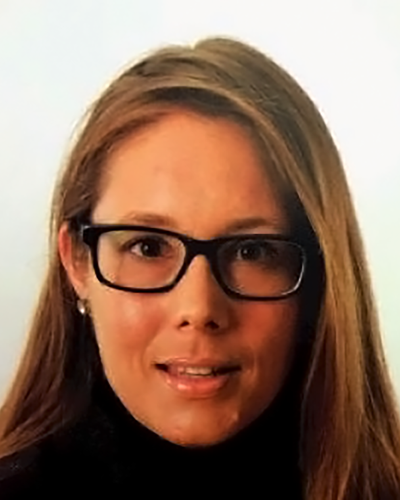
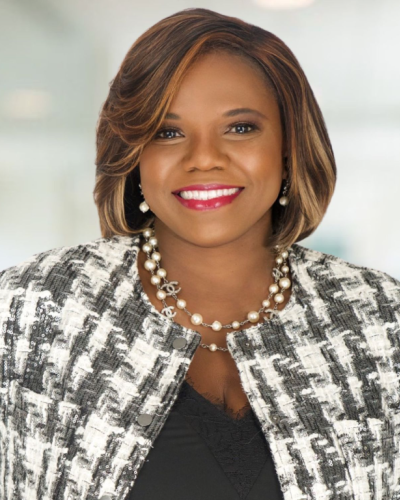
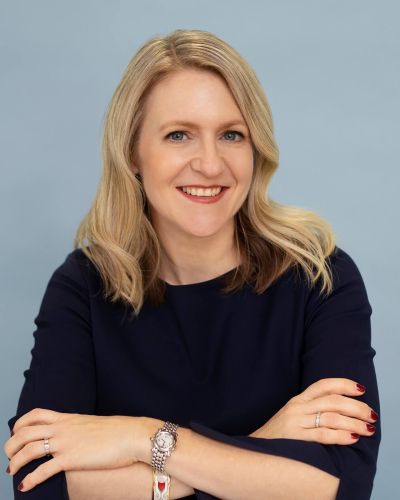
![pallavi-otawar-04-8x10-300dpi[107100].jpg pallavi-otawar-04-8x10-300dpi[107100].jpg](https://www.womentech.net/sites/default/files/styles/portrait/public/webform/apply_to_speak/90293/pallavi-otawar-04-8x10-300dpi%5B107100%5D.jpg?itok=kbkjLoZX)



